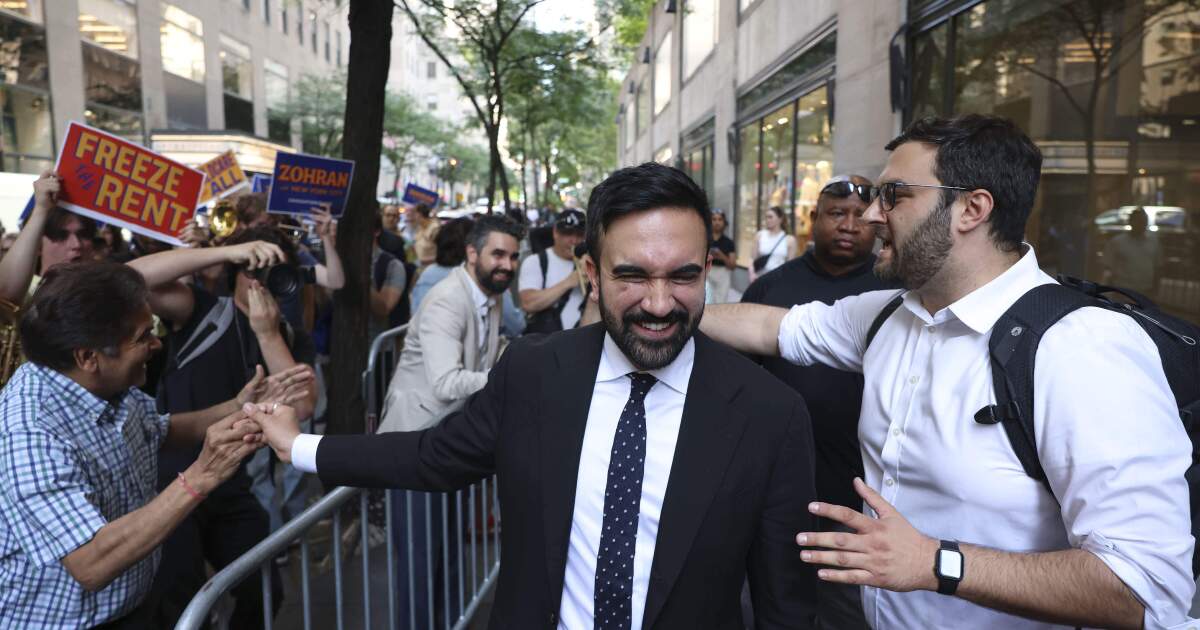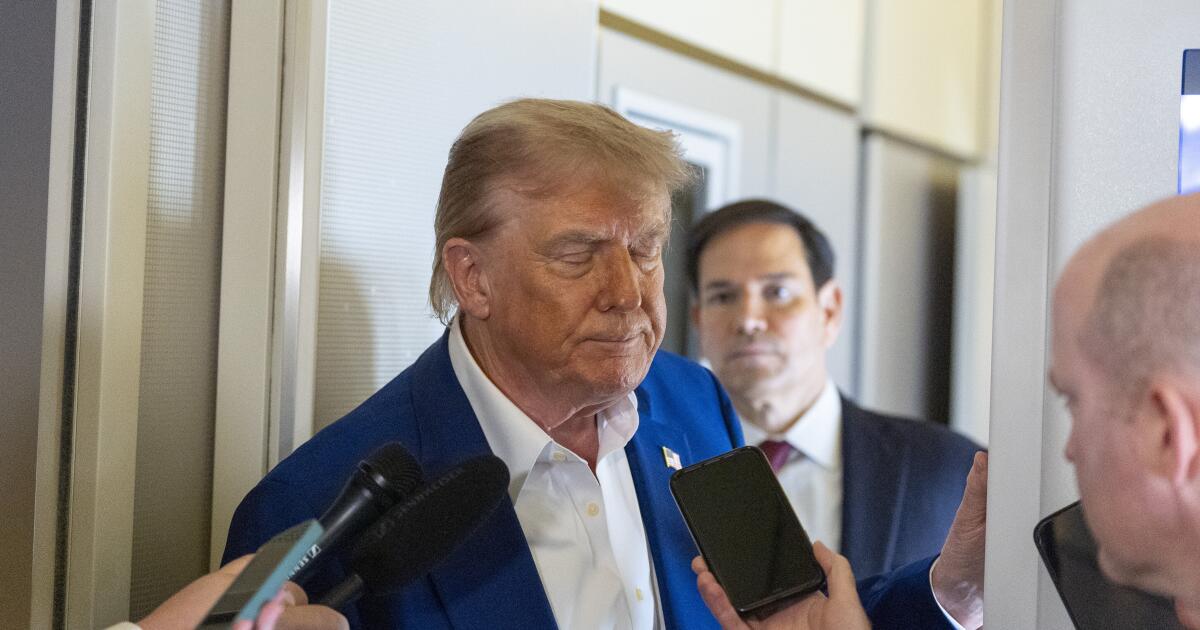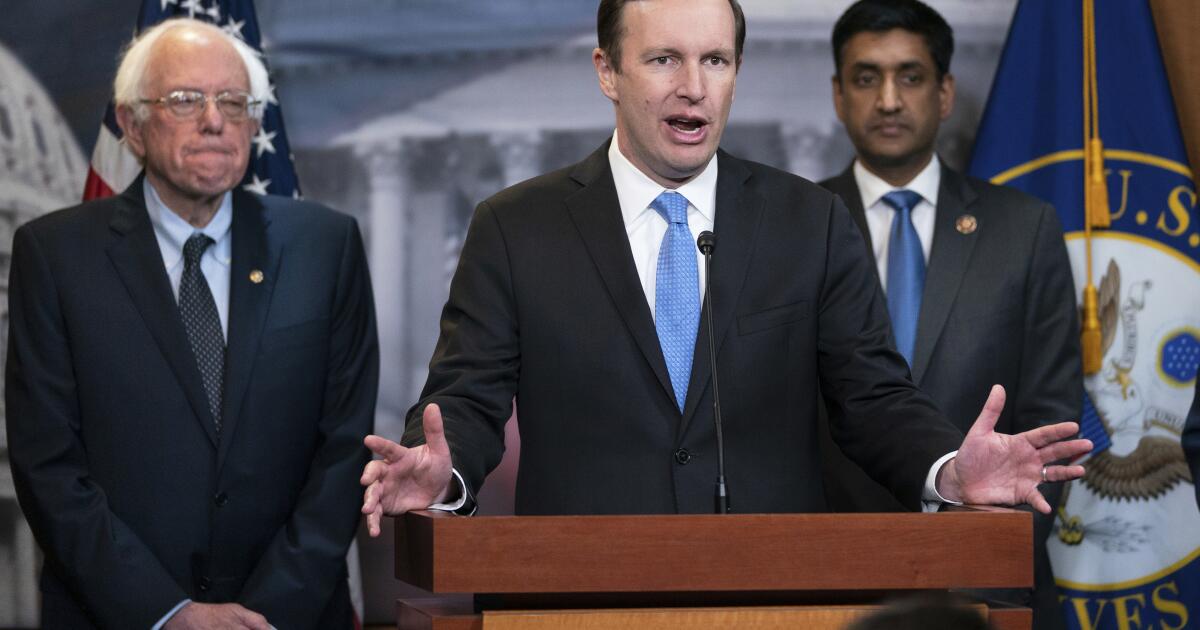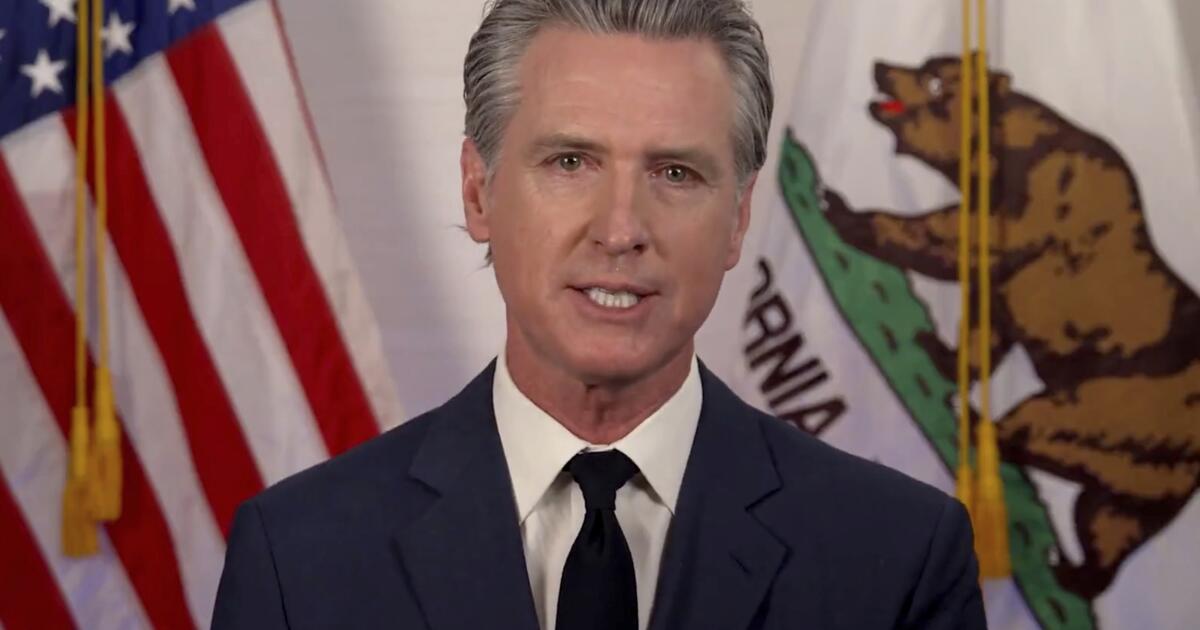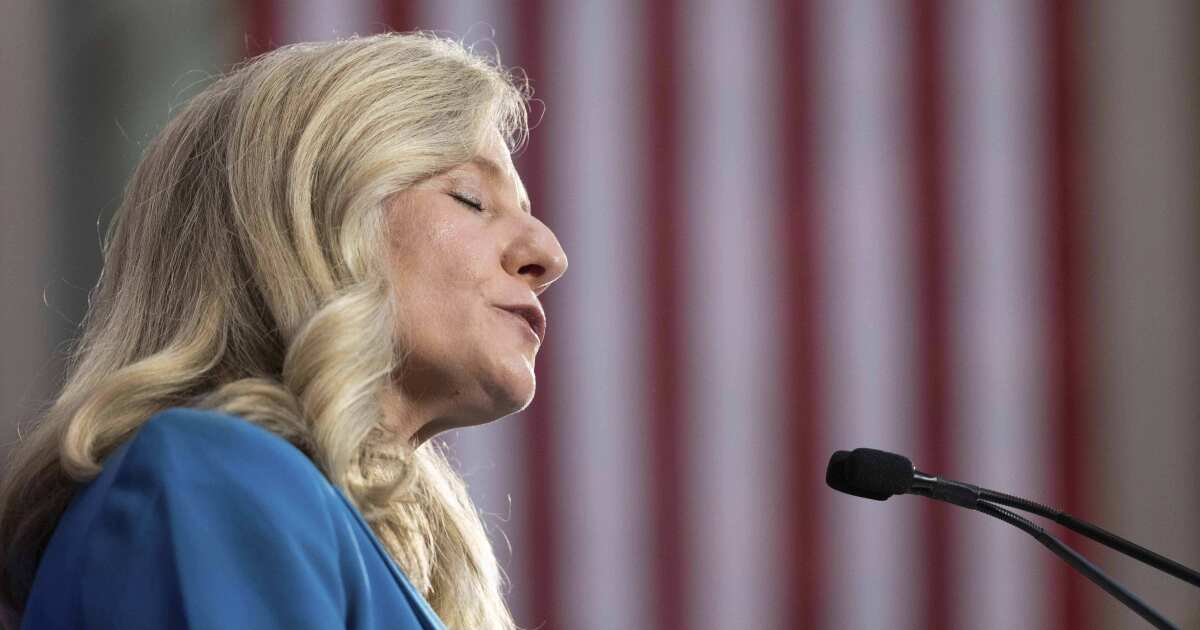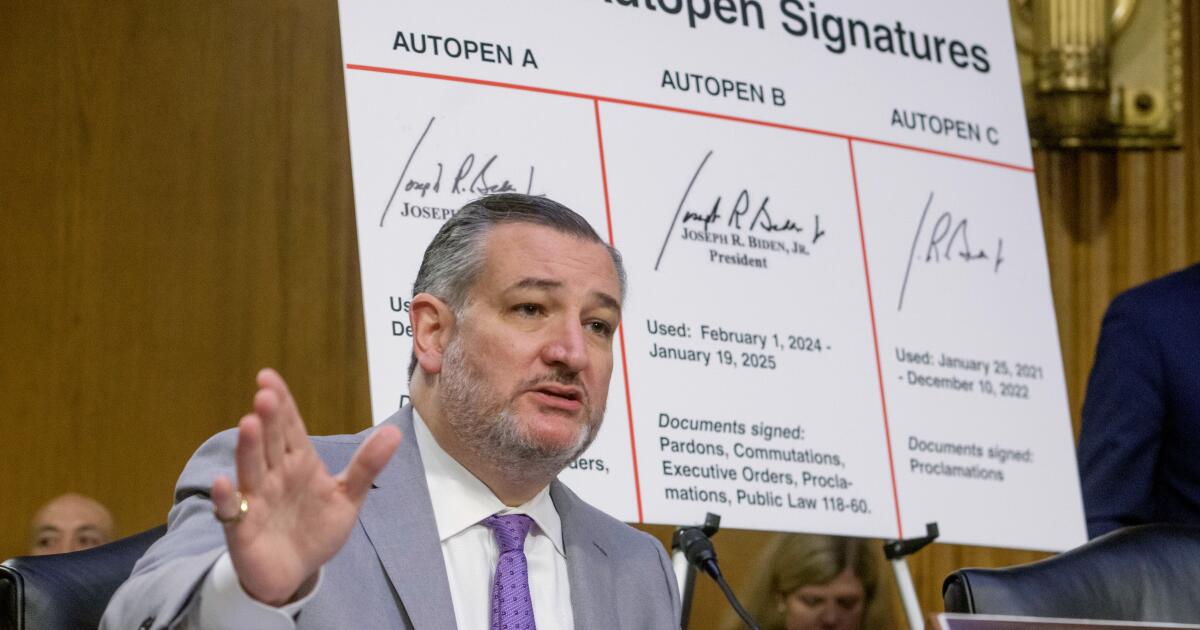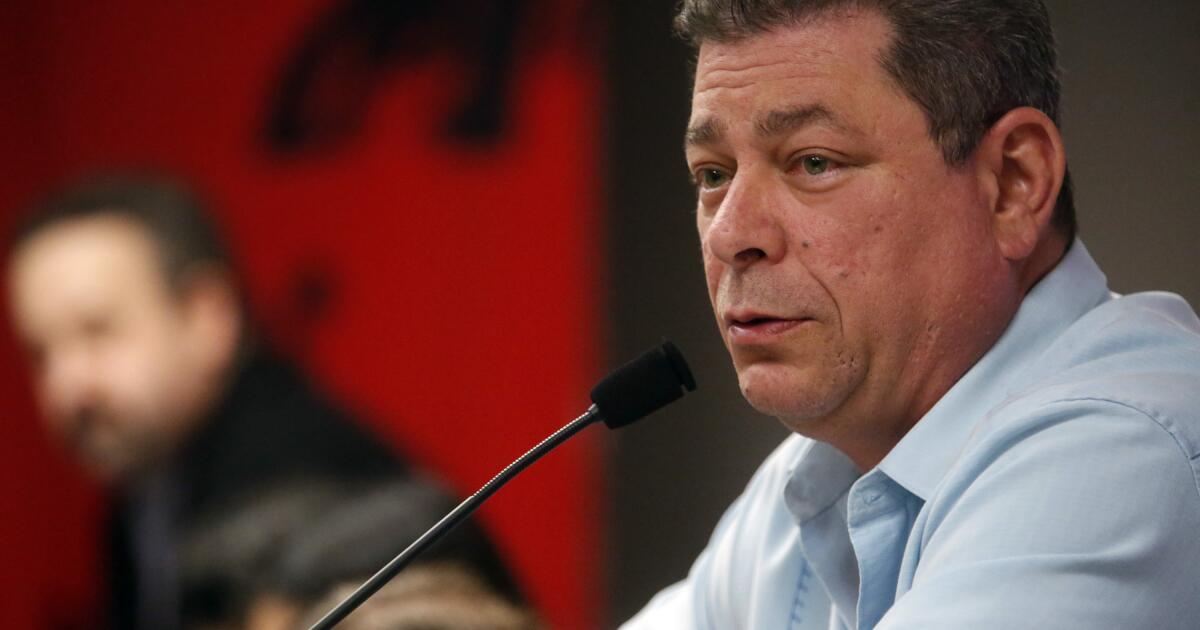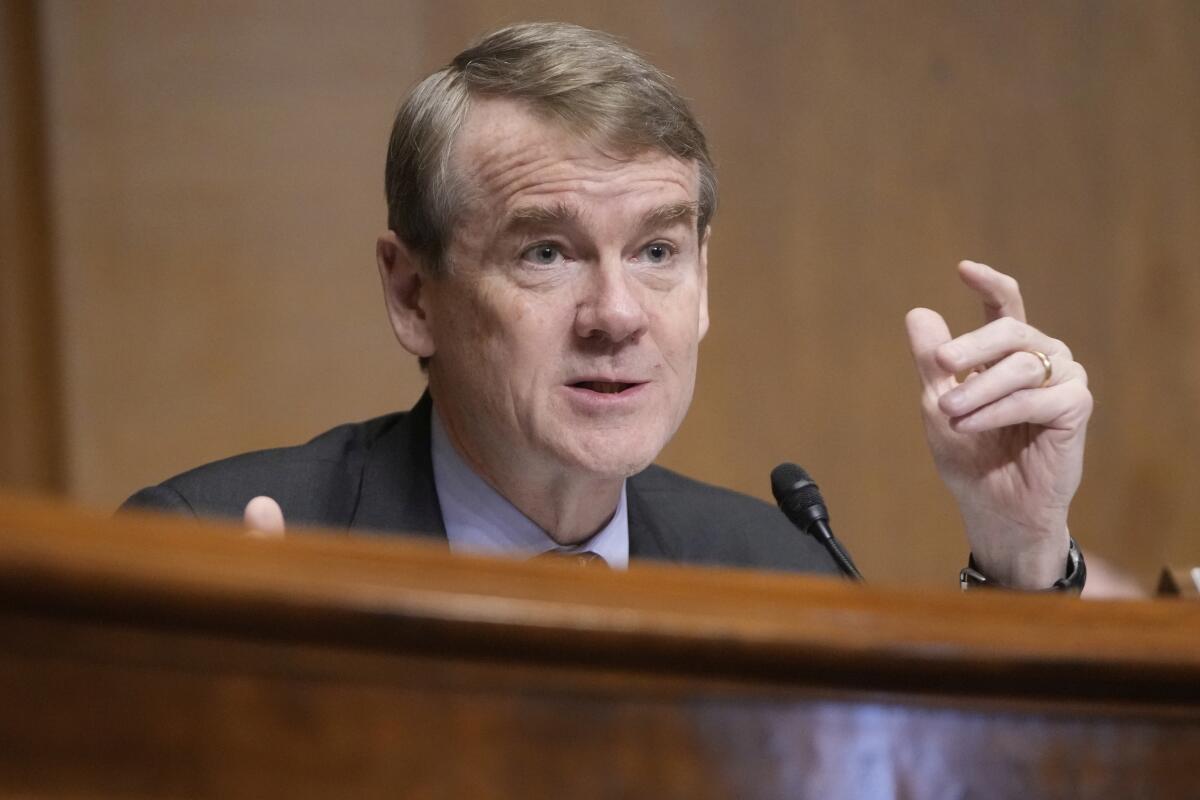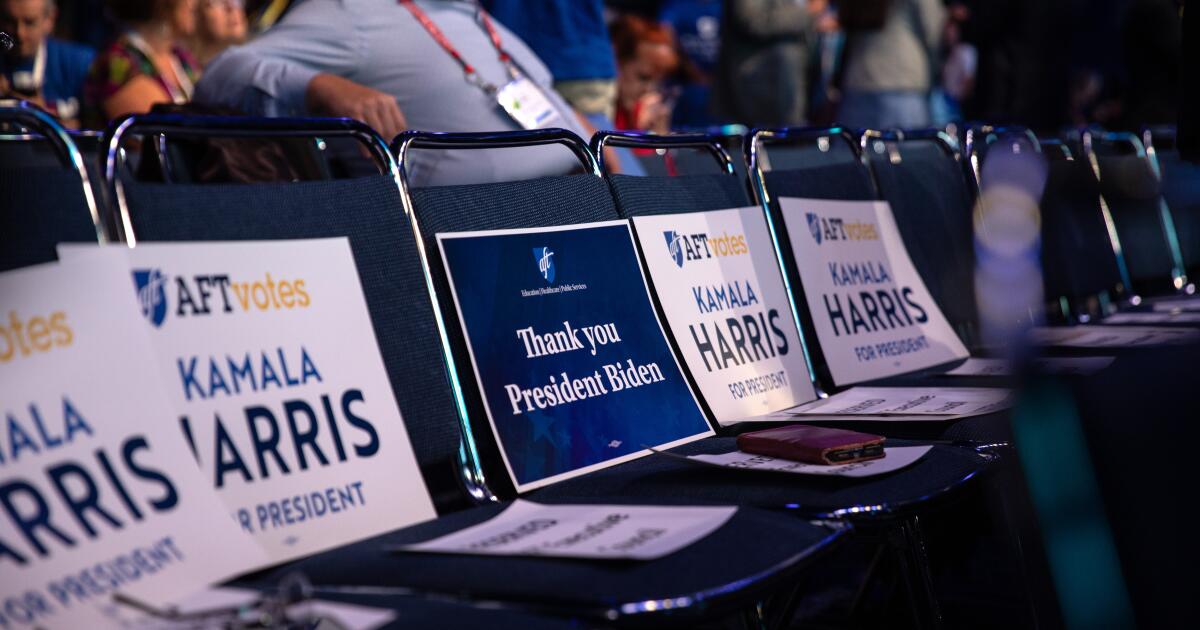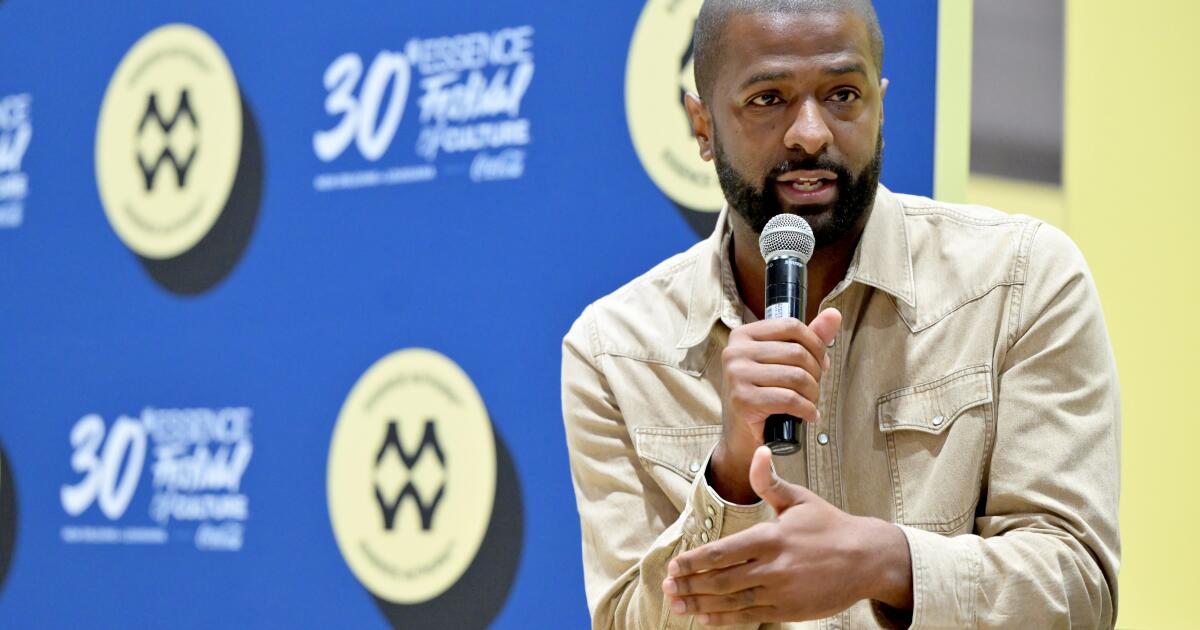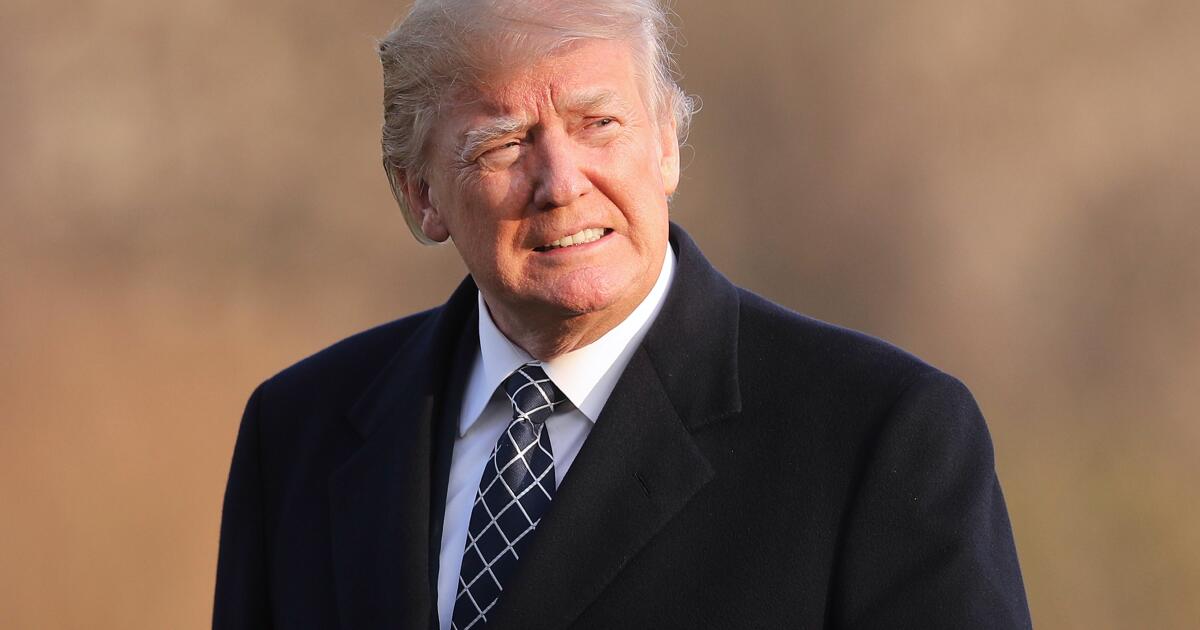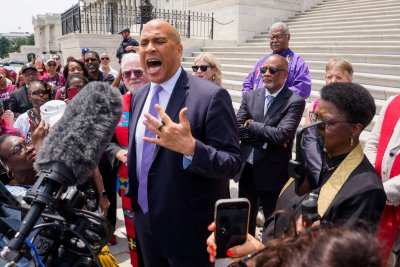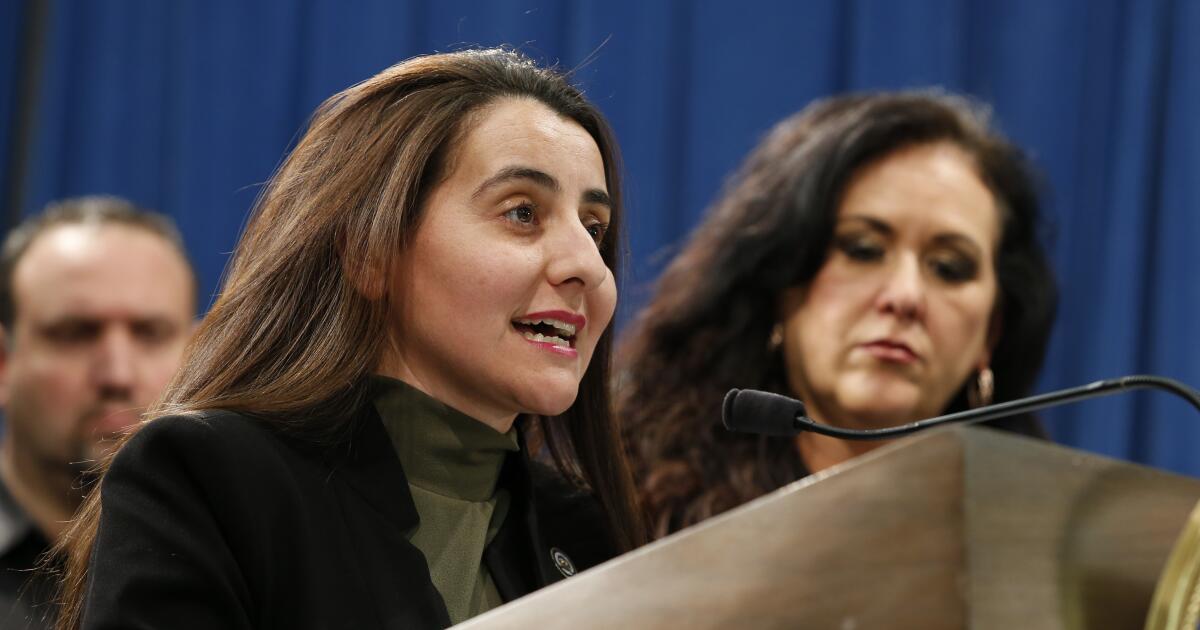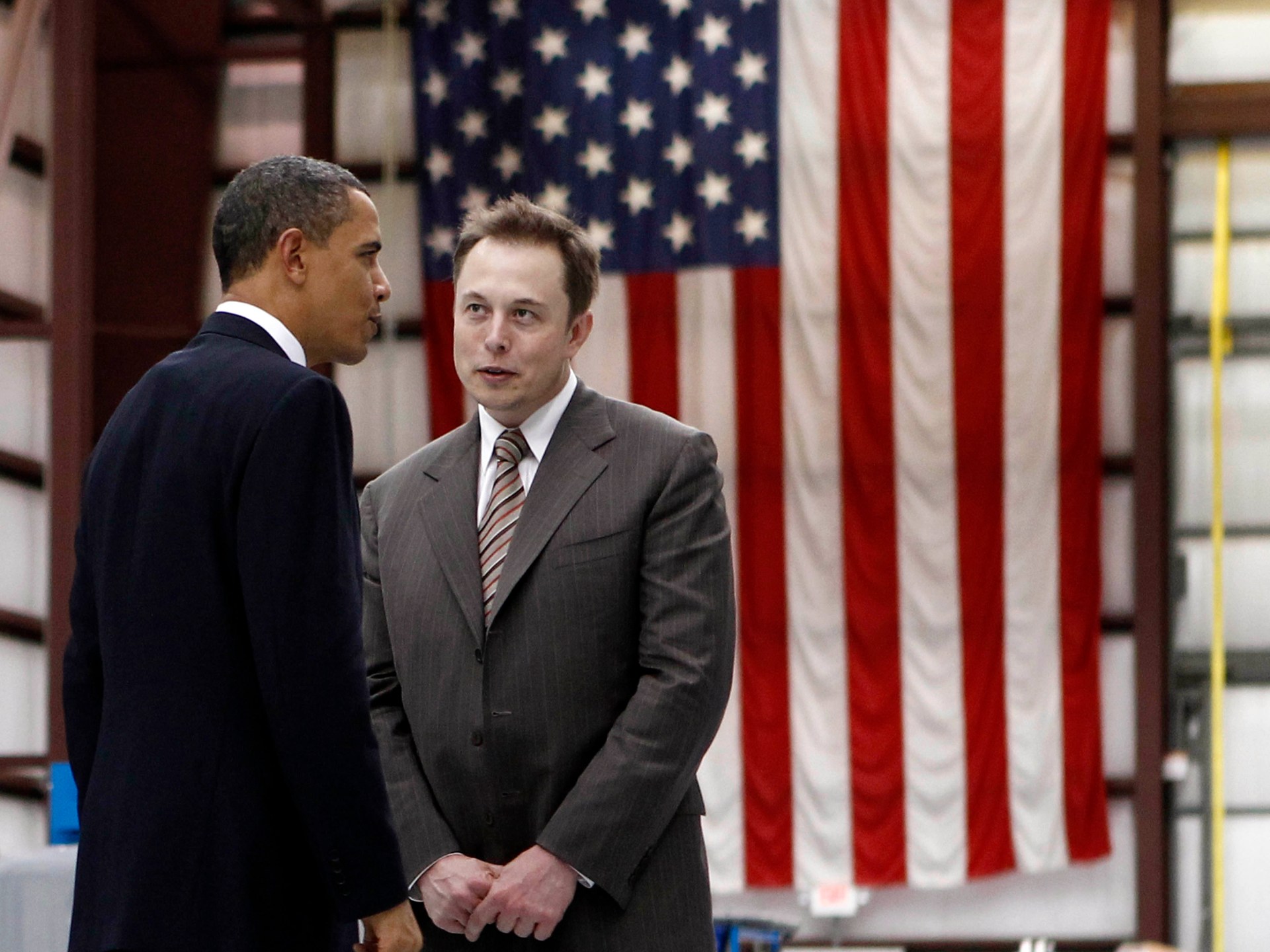WASHINGTON — By outward appearances, Arief and Soraya Wiriadinata led a modest life. He was a landscape architect, she was a homemaker. They lived in a wood-shingle townhouse in a suburban Virginia working-class neighborhood favored by taxi drivers and government workers.
“I considered them a quiet, reserved couple,” said a former neighbor who could recall no signs of wealth or elite connections.
For the record:
12:00 a.m. Nov. 4, 1996 For the Record
Los Angeles Times Monday November 4, 1996 Home Edition Part A Page 3 Metro Desk 3 inches; 100 words Type of Material: Correction
LippoBank–An Oct. 14 article incorrectly identified a 1996 restructuring that occurred at PT Lippo Bank, an Indonesian bank, as occurring at LippoBank of California. The California bank is controlled by James Riady, while the Indonesian bank is part of the Lippo Group, in which the Riady family has controlling interest. LippoBank of California was the subject of a standard compliance examination by the Federal Deposit Insurance Corp. in 1994 in which there was no finding of money laundering. The FDIC did report evidence of “unsafe or unsound banking practices” and LippoBank agreed to comply with an FDIC order that included improved record keeping, particularly of cash transactions of more than $10,000.
For the Record
Los Angeles Times Monday November 4, 1996 Home Edition Part A Page 3 Metro Desk 3 inches; 100 words Type of Material: Correction
LippoBank–An Oct. 14 article incorrectly identified a 1996 restructuring that occurred at PT Lippo Bank, an Indonesian bank, as occurring at LippoBank of California. The California bank is controlled by James Riady, while the Indonesian bank is part of the Lippo Group, in which the Riady family has controlling interest. LippoBank of California was the subject of a standard compliance examination by the Federal Deposit Insurance Corp. in 1994 in which there was no finding of money laundering. The FDIC did report evidence of “unsafe or unsound banking practices” and LippoBank agreed to comply with an FDIC order that included improved record keeping, particularly of cash transactions of more than $10,000.
In particular, they had not been politically active and, according to government campaign-finance reports, had not contributed money to a political campaign until November. But in that month, the Wiriadinatas each wrote a $15,000 check to the Democratic National Committee. The next month they wrote six more checks, totaling $100,000.
Then they disappeared from the United States, returning to their homeland of Indonesia. But that didn’t stop their political largess. The checks kept coming to the DNC. By June they had contributed $425,000–a huge individual sum–more than movie-maker Steven Spielberg, more than AT&T;, more even than the Assn. of Trial Lawyers of America.
And they left behind a mystery that is now at the center of a mushrooming controversy that has spilled into the U.S. presidential race.
Are the Wiriadinatas, as the DNC maintains, an extraordinary embodiment of political philanthropy, motivated solely by President Clinton’s concern for an ailing relative and their desire to see the incumbent reelected?
Or, as the president’s critics suggest, might the couple be a deceptive front for wealthy foreigners–such as Soraya’s now-deceased father, Hashim Ning–who sought to buy influence in American politics but who were prohibited by law from contributing money to U.S. election campaigns?
DNC officials insist that the contributions from the Wiriadinatas, who were legal immigrants in the United States, were legal and proper.
Republicans are asking: Where did they get all that money?
Clinton Links
At this point the questions far outnumber the answers, with the Wiriadinatas silent and out of touch overseas and with the DNC fund-raiser who solicited their money declining all interviews, responding only through intermediaries with specific written answers to written questions.
But several intriguing elements are feeding the tempest, which swirls in the hyper-charged atmosphere of the nearing presidential election.
They include Clinton’s ties to Indonesian business people. Soraya Wiriadinata’s father was a partner of one of Indonesia’s wealthiest men, Mochtar Riady. Riady’s banking, real estate and insurance interests have stretched from Jakarta to Little Rock, Ark., and his family has enjoyed an unusually close relationship to Clinton.
Also, there is the fact that the DNC fund-raiser involved, John Huang, is the same one who brought in an illegal $250,000 contribution from a company in South Korea. When the foreign source of the donation was identified, the DNC returned the money.
And there is the hiring of Clinton confidant Webster L. Hubbell by one of Riady’s enterprises after Hubbell resigned as the No. 3 official in the Justice Department and before he went to jail for defrauding his Arkansas law firm.
Seeking to raise the political stakes, House Speaker Newt Gingrich (R-Ga.) called Sunday for congressional inquiries and maintained that a special counsel would have to be appointed to investigate the affair.
“This is a potential abuse of the American system on behalf of an Indonesia billionaire in a way that we have never seen in American history,” Gingrich said on CBS-TV’s “Face the Nation.” “It’s almost unthinkable.”
Vice President Al Gore, asked to respond to these issues on NBC-TV’s “Meet the Press,” said: “There have been absolutely no violations of any law or regulations. . . . There is nothing that has been done that’s wrong.”
Influence-Buying?
Regardless of who is right, the Indonesian connection strikes a particularly sensitive nerve in the American body politic–the concern that foreigners will find ways to buy influence in domestic U.S. politics. The same fears were triggered two decades ago with the investigation of South Korean government influence-buying in Congress by flamboyant businessman Tongsun Park.
In recent years, Riady family members and the U.S. subsidiaries and executives of the family’s company, the Lippo Group, which includes Los Angeles-based Lippo Bank, have contributed lavishly to the Democratic Party. The Lippo Group’s clout is such that some Washington-based diplomats have questioned whether it has tried to use its connections to influence American policies toward Asia to benefit its financial interests.
Since Clinton embarked on his initial presidential bid in 1991, members of the Riady family and Lippo Group’s American subsidiaries and executives have contributed more than $475,000 to the Democratic Party and its candidates, according to a study of Federal Election Commission records done for The Times by the Campaign Study Group of Springfield, Va.
Mochtar Riady is barred by law from giving to U.S. campaigns because he is not a U.S. resident. But his son, James Riady, a longtime friend of Clinton, lived in the United States legally in 1991 and 1992, when he and his family gave $100,525 to the Democrats. James Riady has since returned to Indonesia.
At the nexus of the relationship between the Clinton administration, the Democratic Party, the Wiriadinatas and the Riadys is Huang, a former president of Lippo Group U.S.A.
Huang left Lippo Group in 1994 to serve as the Commerce Department’s deputy assistant secretary for international economic policy for 18 months. He then joined the DNC, where he is vice chairman of the national finance committee. Huang specializes in raising money from Asian American donors–and he handled the Wiriadinatas contributions.
He has raised several million dollars this election cycle, according to Democratic sources.
Huang also was responsible for a $250,000 contribution from the American subsidiary of a South Korean company–a contribution that proved to be illegal because the subsidiary had not done any business in the United States. The DNC returned the contribution after The Times raised questions about it.
Huang’s most stunning fund-raising success may have been the Wiriadinatas.
Origin of Donations
Huang, in his written responses to questions from The Times, said he met the Wiriadinatas when he visited Ning–who had suffered a heart attack during a visit here–at a Virginia hospital in June 1995. Huang had known Ning, founder of his own group of Indonesian companies, from their mutual association with Riady and Lippo.
Huang said the Wiriadinatas subsequently “expressed an interest in supporting the Democratic Party and the president, and I suggested that they contribute to the DNC.”
In November, the couple attended a dinner at which Gore spoke, and gave their $15,000 donations. In December, Arief Wiriadinata participated in a DNC breakfast at the White House with Clinton, apparently at Huang’s invitation, said DNC spokeswoman Amy Weiss Tobe.
In a Feb. 21 form letter on DNC stationery, Clinton thanked Wiriadinata for “recently meeting with me at the White House. I enjoyed having the chance to talk to you.”
Asked about the Wiriadinatas’ generosity, Huang wrote he had “absolutely no reason to question whether the money they were contributing belonged to them” because they resided in Virginia and were legal U.S. residents.
In addition, he said, Arief Wiriadinata had a master’s degree in engineering from an Ivy League university (the University of Pennsylvania) and worked as a landscape architect, and Soraya was the daughter of the founder of a major enterprise and “to my knowledge has very substantial resources of her own.”
Under federal law, foreign nationals are prohibited from contributing to a U.S. election campaign unless they are legal residents here.
Gordon M. Bava, principal attorney for Lippo Bank of California, said Huang “certainly knew potential donors in the Asian community,” but that he would never violate campaign fund-raising laws.
“I never saw any evidence of that,” Bava said. “Based on my personal knowledge of him and his ethics, I would be very surprised if he was engaged in any such activity.”
Ning initially recuperated from his heart attack and returned to Indonesia, where he died in December. The Wiriadinatas returned home shortly after to be with their family, Huang said. A neighbor recalled that Arief Wiriadinata told him he was “going back home to work for his family.”
But they continued their contributions to the campaign in the United States. Following their departure, the Wiriadinatas made another 15 donations totaling $295,000, according to reports filed by the DNC with the FEC.
All told, the couple wrote 23 separate checks of $5,000 to $25,000 between Nov. 9, 1995, and June 7, 1996. Fifteen were signed by Arief Wiriadinata and eight by his wife.
Seen as Gratitude
DNC and White House officials described the donations as expressions of gratitude for get-well letters the White House sent to Ning when he was hospitalized.
Mark D. Fabiani, special associate White House counsel, said two form letters were sent on behalf of Clinton, both signed by an auto-pen rather than by the president personally. The first, a brief note on June 19, 1995, expressed regret about Ning’s health problems and wished him well. When Ning replied with encouraging news about his recovery, the White House sent a second letter on Clinton’s behalf to Jakarta on Nov. 8.
National DNC Chairman Don Fowler said in an interview last month that the Wiriadinatas were so touched that they made their six-figure contributions.
“It seemed to them a significant courtesy,” Fowler said. “That’s the only linkage we could find.”
Even though many of the contributions apparently came from Indonesia, all of the DNC contribution reports filed with the elections commission indicate the Wiriadinatas were residing in Virginia at the time–heightening suspicions about the money’s true origin.
Tobe said the addresses, however, were apparently taken from the couple’s checks and party donor card. Donors may send contributions from overseas if they maintain their legal-resident status.
The Riadys’ relationship with Clinton, meanwhile, goes back to the late 1970s, when patriarch Mochtar Riady’s son, James, did an internship with an investment bank in Little Rock. James later moved to Arkansas in the mid-1980s to help run an institution named Worthen Bank, which was then partly owned by his family.
White House Meetings
The Riadys and Clinton have maintained the relationship since the president’s move to Washington. Three months after Clinton’s inauguration, James Riady and two other associates, including Huang, met with Clinton briefly at the White House, according to Fabiani. And, in September 1995, Clinton met at the White House for about 20 minutes with James Riady, Huang and Little Rock attorney C. Joseph Giroir Jr., whose development company does joint ventures with Lippo. Just last month, James Riady met with Clinton and others at the White House. Fabiani described the three Oval Office sessions as “meet and greet” social visits.
In November 1994, during a Clinton trip to Jakarta for a summit meeting, the president visited for about 15 minutes with Mochtar and James Riady at a reception they were hosting, Fabiani said.
Meanwhile, the Lippo Group had a relationship with the administration. A business partner was included in a trade mission led by the late Commerce Secretary Ronald H. Brown; during the trip, the company’s Hong Kong affiliate and the New Orleans-based Entergy Corp. signed a $1-billion business deal to build a power plant in China.
Fabiani said the Riadys “have been longtime supporters of the president.” He added that “we have no indication that the White House was lobbied” on banking, trade or any other matters by the Riadys or their representatives.
Lippo Bank, formerly known as the Bank of Trade, was acquired by the Riady family of Indonesia in 1984. The Los Angeles-based bank also has branches in San Jose, Westminster and San Francisco. In the early 1990s, Lippo Bank was primarily engaged in assisting the shipment of goods from Indonesia to the United States.
The bank is a unit of Lippo Group, one of the top five Indonesian conglomerates with interests in financial services, urban development, manufacturing and retail. It has estimated assets of $5 billion to $6 billion and businesses located in Indonesia, Hong Kong, China, Singapore, Australia and North America. The conglomerate employs more than 30,000 people.
The Lippo Bank came under investigation in 1994 by the Federal Deposit Insurance Corp., which completed a money-laundering examination by gaining the bank’s agreement to keep precise track of the origin and destination of cash deposits at the institution.
Bava, the Lippo Bank of California attorney, said he was prohibited by law from speaking about the FDIC action, but he criticized various reports that the bank had laundered money.
“Those allegations are totally, completely false,” he said. “The bank was never accused of or involved in any money-laundering activities. Nor were any of its officers, directors or employees. If there were that kind of allegation made, it would most likely have been based on deficiencies in record-keeping–that is, filing reports with the Treasury Department.”
Bava said the nature of Lippo Bank’s business could lead to lapses in record-keeping. He said the bank handled many small retail accounts that operate on a cash basis.
“They have a large number of deposits,” he said. “As the bank was expanding, it is certainly possible if there were any deficiencies, the large number of cash transactions perhaps got a little ahead of their [administrative] controls.”
In September, Lippo Group won shareholder approval for a controversial $364-million restructuring in which Lippo Life will buy 40% of Lippo Bank from the Riady family, which controls both companies. Investors initially protested that the purchase price for the Lippo Bank stake was excessive, saying they were being forced to buy out the Riadys at a premium to market prices. Analysts saw the transaction as an attempt by the Riadys to raise cash for their personal use from the listed companies they control.
Numerous players associated with the Lippo Group have been major donors to the Democrats and Democratic candidates since Jan. 1, 1991, according to the analysis for The Times.
In addition to James Riady and the Wiriadinatas, Huang and his wife, Jane, gave $162,494 and Lippo Securities President Charles Dequeljoe and his wife, Susan, $70,500. Other individuals and companies associated with Lippo contributed another $74,500. Giroir, who was instrumental in the Entergy deal, and his wife and company gave $83,250. And Entergy and its employees donated $283,463.
Times staff writers Sara Fritz, Jim Mann and Josh Greenberg in Washington and Duke Helfand and Sonia Nazario in Los Angeles contributed to this story.
* GINGRICH QUESTIONS FUNDS: House speaker criticizes donations to Democratic Party. A23
